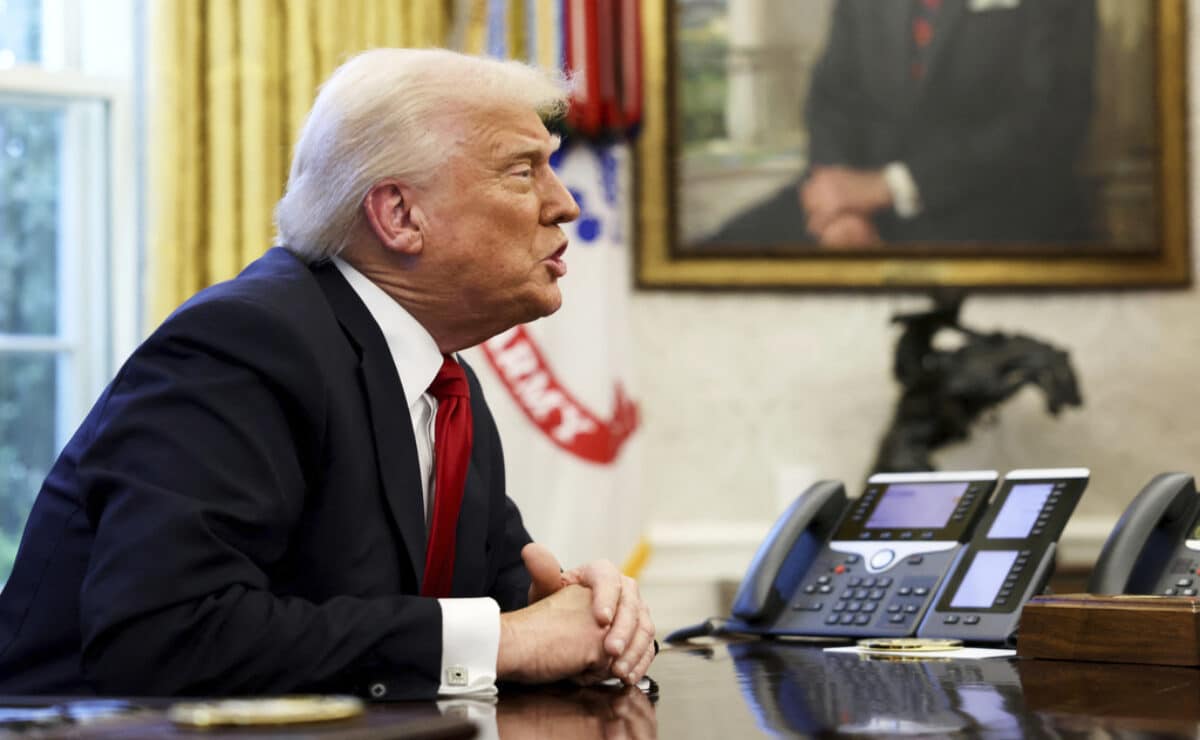WHILE Trinidad and Tobago’s exports to the United States may remain competitive under the baseline 10% tariff, the new import levy could still push up the cost of American goods locally and contribute to rising inflation, economist Dr Vaalmikki Arjoon has warned. Arjoon made the comments to Sunday Express Business in response to US president Donald Trump’s announcement on Wednesday that two new tariffs would take effect on imports entering the United States. “Although the new 10% tariff on imports from T&T will raise the cost of these goods for US buyers, it appears as though items we export such as LNG, and any natural gas liquids such as propane, butane, ethylene etc.
may not be affected by the tariff according to Annex II of the executive order. If this holds, at this point the volumes of these that they import from us should not be affected,” Arjoon said. “Further, since this tariff applies to all US trading partners and 10% is the lowest rate, T&T’s exports should remain competitive compared to those from countries facing higher tariffs.

This could help maintain a healthy demand for our products,” he said. Arjoon said the new tariffs are aimed at stimulating manufacturing and investment in the United States by making imports from China, other Asian economies, and Europe more expensive. “In theory, this should prompt US consumers to shift demand toward US-produced goods, driving investment in US manufacturing and creating new jobs.
However, many American manufacturers rely on imported raw materials, equipment, chemicals, plastics, and technology from countries such as China, Japan, and the EU,” Arjoon said. “The agricultural sector also depends on imports like fertilisers and food processing inputs, while electronic components from Japan are assembled in the US to produce electronic devices. As tariffs push up the cost of these imports, production costs will rise, ultimately causing a broad increase in consumer prices across the US,” he said.
Arjoon said since T&T imports roughly 40% of its goods from the US and does not have the capacity to produce many of these items locally, we will inevitably pay more for these imports. “As a result, prices of US sourced goods will rise in T&T, potentially fuelling inflation,” Arjoon said. “Higher US prices will require us to use more forex to pay for imports from the US.
With the availability of USD from banks becoming more restrictive due to lower export earnings from the energy sector, higher import prices may also drive more black-market purchases to source the required US to meet these higher prices,” Arjoon said. Arjoon said rising demand on the black market could very well drive up black-market exchange rates. “This is indeed very risky to our economic well-being—it will drive up the cost of doing business leading to inflationary pressures and undermine investor confidence.
Plus, higher black-market rates, restricted availability of forex from banks and higher prices from US suppliers may will deepen the financial burdens of our private sector, especially the SMEs, causing them to downsize their operations, lower their product offerings, or even adjust their payrolls,” Arjoon said. “This, therefore, underscores the critical need not only to enhance our local production of natural gas, but also for the non-energy sectors to expand their export market share. This is the key to bolster our reserves and build more resilience against these seemingly never-ending global economic shocks,” he said.
Arjoon said the US financial markets have already taken a hit in response to the tariff announcement, which would impact the balance of Trinidad and Tobago’s Heritage and Stabilisation Fund, as well as the value of US-based investments held by local institutions such as pension funds. “This, however, is likely to be temporary and will improve when the market rebounds. There is also a possibility that the US could lower the interest rates, which would increase the value of our bond portfolio in the HSF,” Arjoon said.
“The US currency value could go in either direction but it is too soon to tell. There is a possibility of other countries forming a trading bloc to collectively reduce their reliance on US imports, mitigate the impact of these tariffs, and potentially shift global trade flows away from the US. This will, of course, weaken the US dollar, which will hurt the value of our reserves,” he said.
On the flip side, Arjoon said there’s a possibility that the US dollar could strengthen over time, as increased reshoring and reduced demand for imports from higher-tariff countries may lower the US demand for foreign currencies, boosting the value of the USD. “If, however, in due course, US achieves its goal of strengthening the domestic manufacturing sector, demand for US made products could increase as US manufacturers typically adhere to higher quality standards, which may justify higher prices yet still attract buyers seeking superior reliability,” Arjoon said. “As the US manufacturing base grows, their government may be motivated to reduce tariffs, prompting reciprocal actions from trading partners and opening broader export opportunities for US goods.
This will strengthen the USD,” he said..
Business

Arjoon: US tariffs could fuel inflation

WHILE Trinidad and Tobago’s exports to the United States may remain competitive under the baseline 10% tariff, the new import levy could still push up the cost of American goods locally and contribute to rising inflation, economist Dr Vaalmikki Arjoon...















